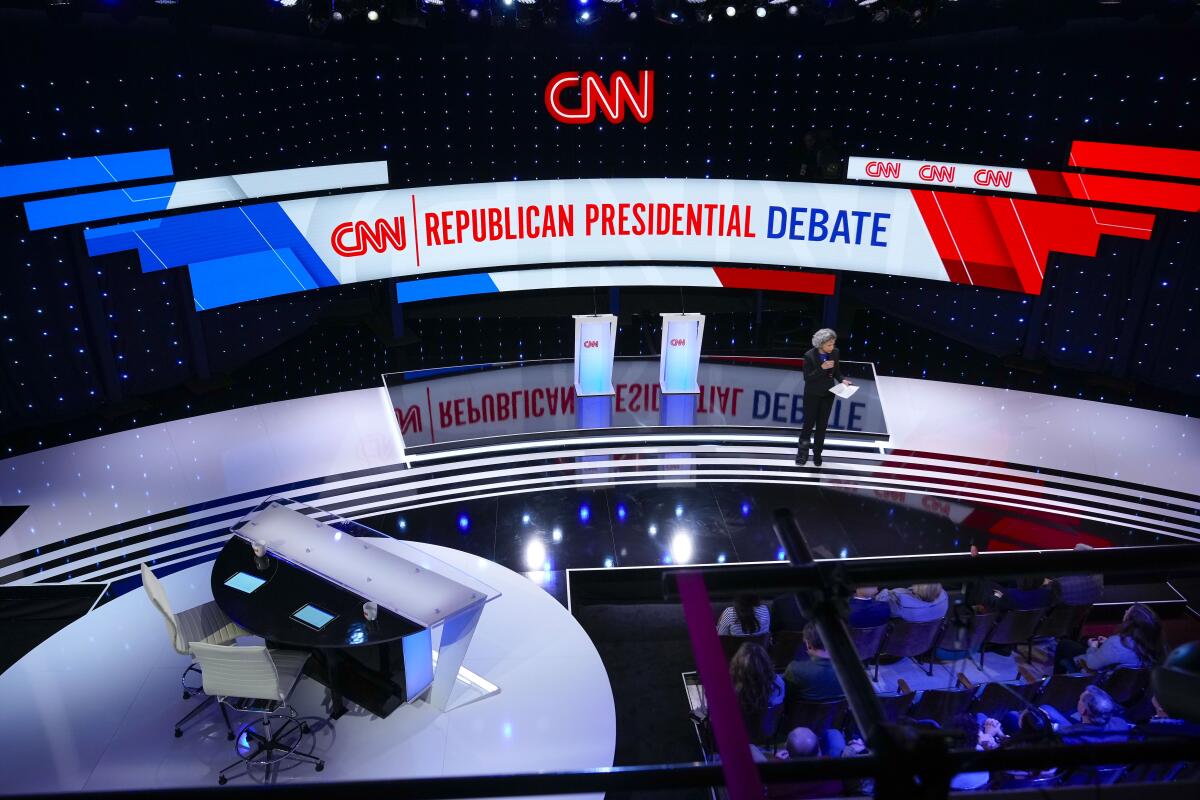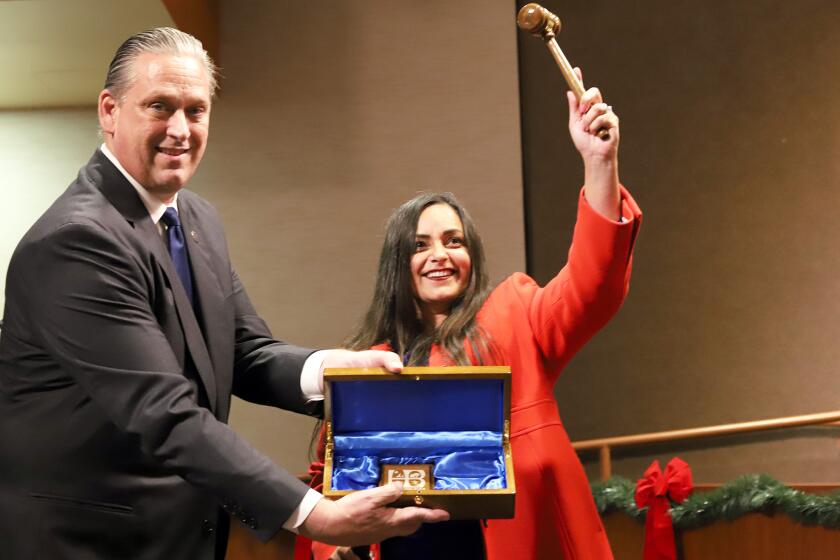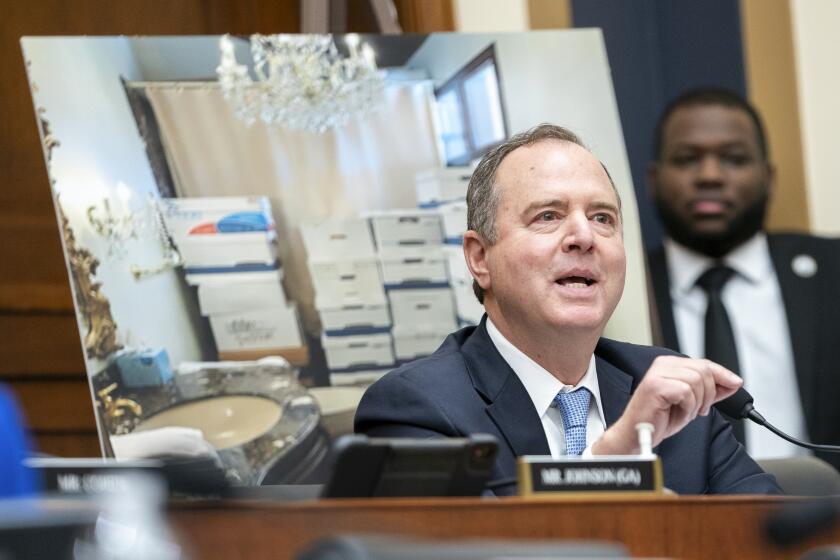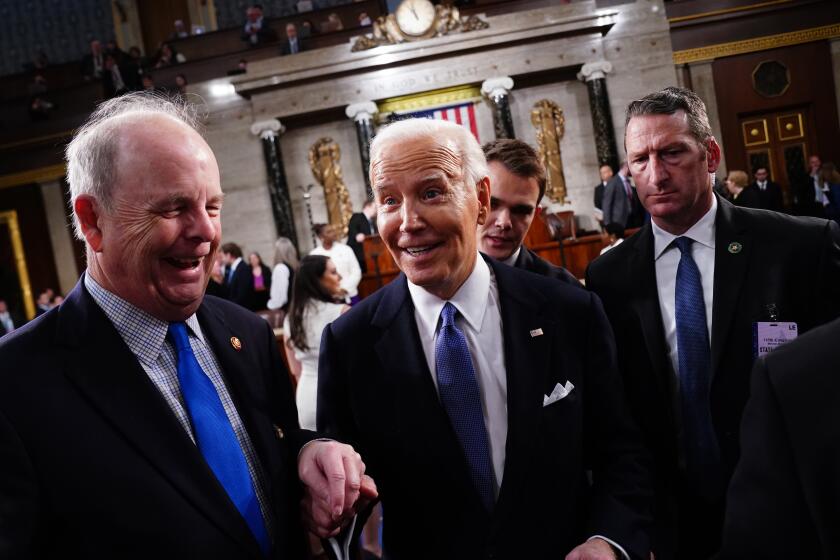Opinion: I’m a political scientist and I’m putting myself on a politics diet for the 2024 election

- Share via
As a political scientist, I’ve long believed political competition to be the keystone of representative democracy. Yet in the 2024 election cycle, I’m consciously limiting my time, attention and contributions to politics. I’ve turned off the news and social media app notifications on my phone. I plan to visit two or three trustworthy news websites only once a day. And I’ve unsubscribed to candidate fundraising emails.
Why? Because while political competition theoretically drives efficient and effective governance, it does not follow that all political spending and engagement are necessarily productive. In fact, I’ve come to believe that much of the time and money Americans spend on politics might be driving division more than promoting civic knowledge and participation.
The 2024 presidential contest will likely be another costly political spectacle. Spending for the 2020 campaign topped $14 billion, more than doubling a record set in 2016. Most observers expect the billions raised and spent by candidates leading up to November 2024 will set yet another record.
The person Trump should choose is on no one’s radar except mine. It’s such a perfect choice that I’m loath to even write out my thoughts lest they manifest like a political version of Beetlejuice.
If campaign spending were funding reasoned debate or policy analysis, it might all be a worthy investment. But a significant portion enriches consultants, media companies and political operatives. Consider that almost half of the campaigns’ expenditures, according to the Federal Election Commission — which reports on campaign financing quarterly — went to something other than communicating with voters during the 2020 cycle. A full 10% was poured back into simply raising more money.
And the money tabulated by the FEC is only one way to measure political expenditures. Among the data collected by the Bureau of Economic Analysis, there is a category for “professional advocacy” — engagement funded by nonprofits such as labor groups and political committees. During election years, the figure goes up. In 2020, it was roughly $20 billion higher than in 2019 and 2021. The bureau also reports on how much American households spend on print and broadcast media — in 2020, it was more than $180 billion. Those dollars didn’t all go to coverage of the election, but surely a significant portion did.
Along with our dollars, Americans invest time in political competition. We match the billions we spend on political media with time spent consuming it. In 2023, the top 25 most-watched cable news programs alone accounted for around 8 billion viewing hours, and that doesn’t count online engagement, or newspaper reading or listening to podcasts.
It’s the start of a potential winding down for the lengthy Republican-led probe that was launched after the party seized control of the House in January.
And we volunteer. According to the Census Bureau’s American Time Use Survey, Americans doubled the amount of time in the category “government services and civic obligations” in 2016 compared with 2015 and, even in the midst of the pandemic, volunteer hours increased by 5% in 2020 relative to 2019.
Political engagement surely informs voters about the issues facing the country, the positions of candidates and parties, and arguments for and against specific policies. But Americans might find that less is more. An experiment that paid Facebook users to deactivate their account for the four weeks before the 2018 midterm election found that disengagement reduced political polarization, increased subjective well-being and increased time spent socializing with family and friends. While knowledge of political information about the election declined slightly, there was no similarly sized effect on turnout at or engagement with the election.
All this means we can have a more focused and deliberate approach to politics without sacrificing advocacy or civic participation.
President Biden and the Democratic Party are showing signs they’ll match Republicans’ hard-edged tactics in the 2024 campaign.
Start by putting yourself on a time and money budget so that you, not the latest outrage or poll result, control your participation. I am not suggesting unilateral disarmament, that you disengage entirely or stop working for causes and candidates you care about. The budget you set for contributions, media intake and volunteering can be as large as you want. But don’t let the heat of the campaign drive your behavior.
The hardest part may be limiting media consumption. Instead of scrolling through whatever the internet algorithms feed you or bingeing political podcasts or cable news throughout the day, you might subscribe to a daily politics newsletter from a reputable source. You might choose one or two days a week when you will call a friend or go for a walk with family instead of watching politics on television.
The after-speech Thursday only sealed the deal for President Biden — he’s not an ‘elderly man with a poor memory’ after all.
Imagine if we unlocked billions of hours of Americans’ time for friends, family, work or volunteering that isn’t connected to electioneering. Imagine the societal benefits if we chose to redirect some of the money spent on political competition to education, scientific research, new small businesses or to directly uplifting the marginalized.
It is within our power to take back control of our time from the doom-scrolling and emotional roller coaster of political competition. And taking back our time and attention with a reasoned plan might even push political elites to spend less of their time generating outrage in pursuit of your money and emotions. We can help depolarize our politics by making the spectacle of the 2024 campaign an important but not-too-large part of our lives.
Seth J. Hill is professor of political science at UC San Diego. He is the author of “Frustrated Majorities: How Issue Intensity Enables Smaller Groups of Voters to Get What They Want.”
More to Read
A cure for the common opinion
Get thought-provoking perspectives with our weekly newsletter.
You may occasionally receive promotional content from the Los Angeles Times.














